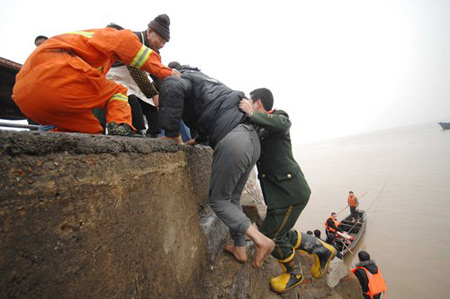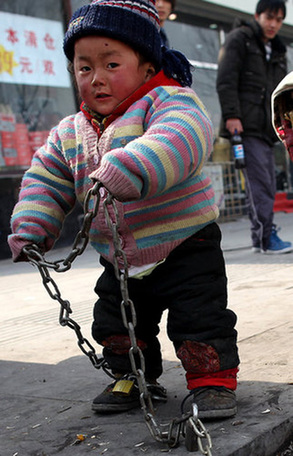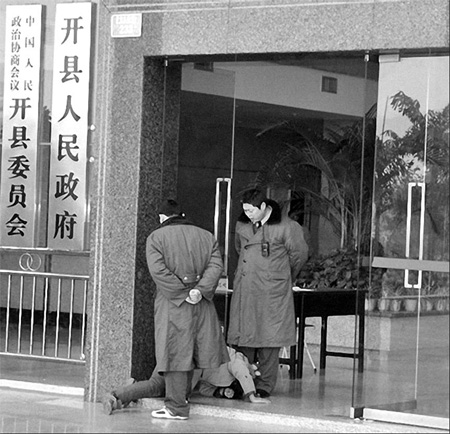Society
- Details
- By Mengxin
- Hits: 804
|
|
- Details
- By Mengxin
- Hits: 908

A victim is rescued after being stranded for nearly six hours in the Qiantang River in Haining, east China's Zhejiang province, Feb 3, 2010. Three boats with five people on board left Xiangshan for Tongxiang, Zhejiang, on Jan 31, 2010. The boats were all stranded in Haining at the night of Feb 2, and the largest one turned on its side and sank. While rescuing people on the sunken boat, the seamen's phones dropped into the water and they lost contact with the outside. They were rescued by a small boat sent from the riverbank after their cry for help was heard around 7:00 am by a cleaner who called the police. All five were picked up out of the water and safe around 10:00 am.
- Details
- By Mengxin
- Hits: 994

Tai Shan, a panda at the National Zoo in Washington, DC, USA, reaches for an apple on his farewell frozen cake on Jan 30, 2010.
CHENGDU:A panda-breeding center in Chengdu, Sichuan province, is looking for a Chinese language teacher for one of the two pandas due to arrive from the United States on Friday.
The pandas, Mei Lan, 3, and Tai Shan, 4, who were born and raised in zoos in Washington, will land at the Chengdu Shuangliu Airport tomorrow afternoon.
The base has also asked the public to choose a "boyfriend" for Mei Lan, as she had reached the mating age, he said.
The center dedicated a Web page on popular Internet portal Sina.com on Jan 28 to Mei Lan.
Read more: Wanted: Chinese teacher and boyfriend for US-born panda
- Details
- By Mengxin
- Hits: 918

- Details
- By David Cao
- Hits: 741

A bus full of passengers boards a vessel at a port at a port in Haikou, capital city of south China's Hainan Province, Feb. 1, 2010. It is estimated that the number of passengers traveling across the Qiongzhou Strait would reach 1.52 million during the peak period of the traditional Spring Festival.
More Articles …
Page 164 of 255
